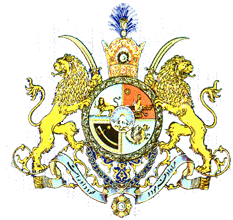

Withdrawal of support for the Shah of Iran
Jimmy Carter's Nobel
Legacy
Edward Daley, 03/10/03
In 1977, Jimmy Carter
withdrew U.S. support for the Shah of Iran, Mohammed Reza Pahlavi. The Shah's regime
engaged in the torture of it's (Communist) enemies, a practice which Carter
vehemently opposed. However, that regime was the strongest ally of both the
U.S. and Israel in the region, and although brutal, was certainly no more so
than any number of far more fanatical, anti-American and anti-Semitic
governments in the Middle East.
Carter also ordered the CIA to cease funding to Iran's Mullahs, who had
basically been accepting money in exchange for inhibiting anti-western
sentiment in the region.
Shortly afterward, the Shah was overthrown. The new regime, under the
direction of the Islamic extremist Ayatollah Khomeini, then set to work
reversing every pro-western policy of the Shah's government, such as women's
rights and the citizenry's access to western media.
The torture and/or execution of political prisoners continued, only the
targets of the new government were no longer mostly Soviet agents, as was the
case under the Shah's rule, but rather, any pro-western Iranian who could be
found, along with thousands of other individuals who were not considered a part
of the Ayatollah's plan for the future of Iran.
In 1979, the fanatical followers of the once exiled (to France no less)
Ayatollah swarmed the U.S. embassy in that country, taking fifty-four Americans
hostage for what would prove to be 444 days. Carter was ineffective in securing
the release of these hostages, either by diplomatic or military means.
In 1980, Iraqi dictator Saddam Hussein, who viewed the return of
Khomeini and the Islamic revolution in Iran as threatening to his own more
secular agenda, and unrestrained by any American participation in Iranian
affairs, began the eight year Iran-Iraq war.
That same year, the Soviets, emboldened by the fall of their primary
opponent in the region, invaded Afghanistan. Carter's response was to withdraw
the U.S. from the Olympic games of that year.
Secret political dealings with the Soviet Union
According to Peter Schweizer, the author of the best-selling book
'Reagan's War', Jimmy Carter sought the assistance of the Soviet Union to
undermine the 1976 reelection bid of Gerald Ford, as well as Ronald Reagan's
1980 Presidential campaign. These allegations are based upon accounts provided
by former Soviet Ambassador Anatoly Dobrynin and former First Deputy Foreign
Minister Georgii Kornienko.
It is reported that former Soviet Ambassador Averell Harriman met with
Kornienko in September of 1976 on behalf of (then candidate) Carter and
"gave assurances that if elected president, he (Carter) would take steps
toward the rapid conclusion and signing of the SALT II Treaty, and would be
ready to continue negotiations on an agreement on substantial reductions in
strategic weapons".
Schweizer describes how Carter, during his 1980 reelection campaign,
"dispatched [pro-Soviet industrialist] Armand Hammer to the Soviet Embassy
for a secret meeting with Ambassador Dobrynin to ask for Soviet help" with
issues which would assist him in being reelected, such as Jewish emigration,
and promised the Soviets that their help would not be forgotten.
In 1984, (former President) Carter is said to have visited Dobrynin
personally, seeking assistance in improving the election prospects of his
former Vice President Walter Mondale, and warning the Ambassador that if Reagan
was reelected, no arms agreements would ever be reached between the U.S. and
the USSR.